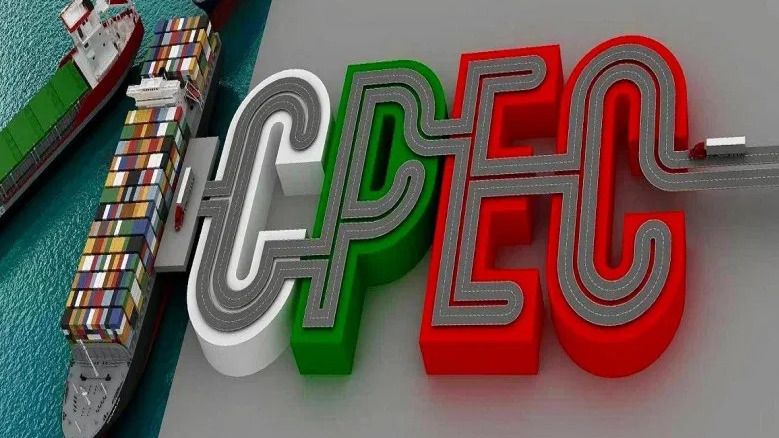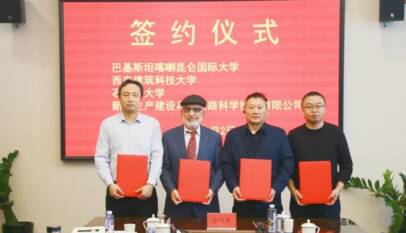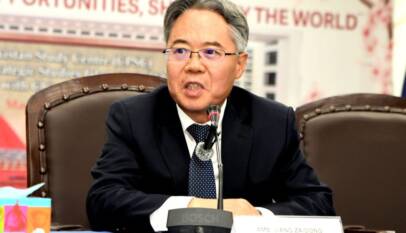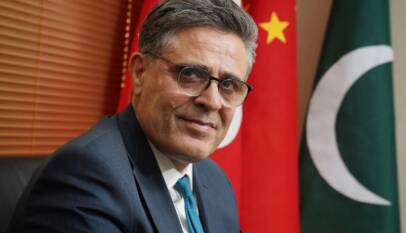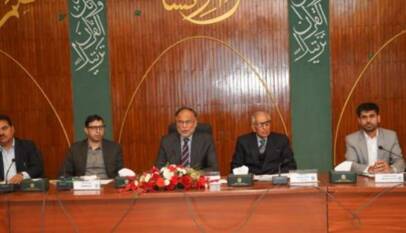Government should consider engaging diplomatic community on CPEC
Amid growing US anti CPEC sentiments, government of Pakistan needs to activate a correct image of CPEC. In order to maintain its relations with the world’s leading economic states, it is essential to promote worth and feasibility of CPEC to the entire world. It is suggested that local bodies at domestic level should refrain from politicizing CPEC. As many regional countries have expressed their willingness to join CPEC, the federal government should engage the diplomatic community and convince them that CPEC would promote socio-economic development at local and regional level.
The mistrust in the relations between Pakistan and the United States has markedly been overcome over the last one year and a half.
Prime Minister Imran Khan has had a meeting with the US President Donald Trump on the sidelines of year. In a sign of significant improvement in the bilateral ties, Mr Trump is expected to visit Pakistan “soon” but this visit would not be part of the regional tour of the US President this year which would take him to India and Afghanistan.
The improvement in the ties is largely attributed to Pakistan’s efforts to persuade Afghan Taliban to hold direct talks with the United States and the two sides are expected to finalise a deal later this month which would pave the way for talks between Taliban and the Afghan government.
The United States also announced resumption of military training for the Pakistani army officials, though the overall military assistance would still stay suspended. But this time around, the cooperation between the two countries would not be restricted to security and military related matters but there are indications from Washington that it wants to extend cooperation to economic field as well.
Alice Wells, top US South Asian diplomat, in a talk at the Washington’s Wilson Center, announced last month a series of visits of US business delegation would take place this year.
In a further sign of improving relations, the United States is also expected to support Pakistan’s bid to get off so-called grey list of Financial Action Task Force (FATF) in its meeting, on February in Paris, of the countries which have not done enough to curb money laundering and terror financing.
Hopes for Pakistan to get off this list were raised in a meeting in Beijing last week when except for India the rest of the participants expressed satisfaction over Pakistan’s report of compliance with the FATF recommendations.
Pakistani authorities also hope that US bilateral support as well as at the international forums would encourage foreign investors particularly from the West to bring their money into Pakistan.
Pakistan has already been notified as a country having made significant progress by the World Bank on its index of ease of doing business.
President Trump called Prime Minister Imran Khan as a “friend” and said Pakistan and US have never been as close as are now.
All these positive signals are welcome but there are some challenges for the two countries too.
The United States has ramped up its criticism of China Pakistan Economic Corridor (CPEC). In her Wilson Center talk, Wells wanted Pakistan that its debt burden would increase manifold as according to her much of the money invested and committed by China is in the form of loans and not assistance.
She also raised questions about the transparency in the CPEC-related projects and even claimed that some firms blacklisted by the World Bank have been signed up for the CPEC projects. Wells repeated her concerns over CPEC during her visit to Pakistan last week.
Ironically, her outburst against CPEC at the time when Prime Minister Khan and President Trump were discussing ways and means to expand relations in Davos.
China on both occasions angrily rejected US concerns and Pakistan too rubbished the criticism.
In an interview with the CNBC during Davos tour, Prime Minister rejected criticism on CPEC as “nonsense.”
He thanked the Chinese government for its help to Pakistan in the infrastructure development.
“When the Chinese came to help us with the Belt and Road initiative (BRI) and CPEC, [we] were really at the rock bottom,” he said in response to a question whether the project was a debt-trap for Pakistan.
“So we are really grateful to the Chinese that they came and rescued us.”
In future, Pakistan has to tread a diplomatic tightrope to keep good relations both with Beijing and Washington.
China has been an all-weather and time-tested friend for Pakistan, which stood by it through thick and thin. Pakistan has had extensive cooperation in all fields with China. It also has historically close relations with the United States. It has to continue to strengthen its cooperation with the two countries on their own merit and depth of relations without compromising its ties with one at the cost of its ties with the other.
The Chinese side not only rejected the US concerns on CPEC but also made it clear that it would welcome efforts to strengthen Pakistan-US ties. The US pressure on Pakistan with regard to CPEC may intensify in the future but Pakistan has to stay firm in maintaining good relations with both countries in its own national interests.
The government ministers need also to show caution in their comments on matters relating to CPEC. At times, outlandish comments on the issue stir unnecessary controversies and create bad impressions, which are difficult to dispel.
They should not drag CPEC into domestic politics.
Prime Minister should restrain his ministers from commenting on CPEC-related matters unless they are well aware of the subject and only relevant ministers should publicly speak on the matters.
Pakistan as well as China has very rightfully offered third countries to join CPEC projects. Saudi Arabia has already shown willingness in this regard and the offer is open to the US and its Western allies.
The foreign ministry should arrange briefings with the diplomatic community in Islamabad with the help of Planning Commission on CPEC. Such briefings would help allay concerns about the project to a large extent.
There is a political consensus in Pakistan on CPEC. The government can send parliamentary delegations to foreign countries to lobby support for CPEC and address concerns in this regard. In view of US opposition to CPEC, Pakistan needs to step up diplomatic efforts for the defence of the project touted as a game changer for the region.
Pakistan and China could also launch joint efforts to convince regional and neighboring countries to join CPEC to turn it into a genuine trans-regional project.
India for its own reasons too opposes the CPEC and the Indian naval chief recently reiterated those concerns.
But a concerted effort to project it as a major project aimed at promoting regional connectivity would comfortably such propaganda to rest.
Experts say Pakistan needs stable policies to fully utilize China’s expertise in clean energy and industrial development
Pakistan’s energy sector investments are on a complex trajectory. Despite government effor…



